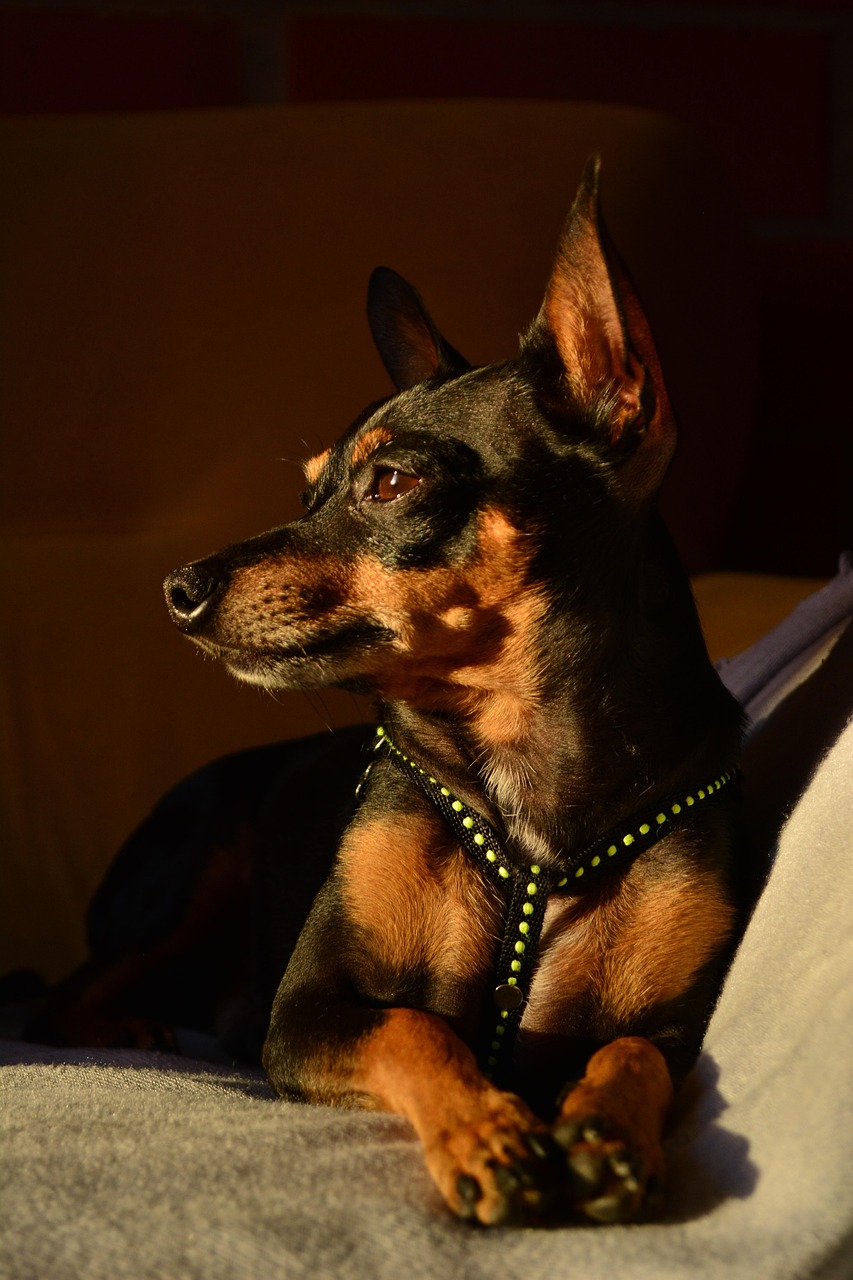With its sharp features, confident stance, and fearless bark, the Pinscher may be small in size, but it’s packed with personality. Often mistaken for a miniature Doberman, the Miniature Pinscher — or “Min Pin” — is actually a distinct and much older breed, known for its spirited nature, bold energy, and devotion to its family.
A Bold and Lively Temperament
The Pinscher is curious, alert, and full of self-confidence. It sees itself as much bigger than it really is — and acts accordingly.
- Fearless and assertive, often taking on challenges without hesitation.
- Extremely loyal to its owner, forming deep bonds with family members.
- Can be suspicious of strangers, making it an excellent watchdog.
Despite their size, Pinschers are not “lap dogs” in the traditional sense — they’re active, assertive, and like to be in control of their environment.
High Energy and Mental Stimulation
This breed is packed with energy and needs both physical and mental stimulation daily.
- Short, brisk walks, interactive toys, and games like fetch are great outlets.
- They love having a “job” or task to do — even if it’s just patrolling the house!
- Without enough activity, they can become bored and destructive.
They thrive in environments where they can explore, run, and stay mentally engaged.
Training with Firmness and Fun
The Pinscher is intelligent and learns quickly, but it can be headstrong and independent.
- Use positive reinforcement with treats, toys, and praise.
- Be consistent and assertive — but never harsh.
- Keep training sessions short and engaging to avoid boredom.
With patience and structure, the Pinscher can be well-mannered and obedient — but don’t expect complete submission. This is a dog with opinions!
Socialization is a Must
Pinschers can be territorial and may act aggressively if not socialized early.
- Introduce them to people, dogs, and different environments as puppies.
- Reward calm, friendly behavior during new experiences.
- Avoid isolating them — social confidence comes from exposure.
Proper socialization helps prevent fear-based reactivity and builds a well-rounded temperament.
Grooming and Care
With a sleek, short coat, the Pinscher is low-maintenance when it comes to grooming.
- Brush weekly to keep the coat shiny and healthy.
- Bathe once a month or as needed.
- Keep them warm — their small size and short hair make them sensitive to the cold.
Dental hygiene and regular nail trimming are also important, as this breed can be prone to dental issues.
Health and Nutrition
The Pinscher is generally a healthy breed with a lifespan of 12 to 16 years, but attention to diet and health care is essential.
- Feed high-quality food appropriate for small breeds.
- Watch out for obesity — even a little extra weight affects their joints.
- Regular vet check-ups help monitor for common issues like patellar luxation or dental disease.
Ideal Environment and Family Role
Pinschers do best in homes where they are not left alone for long periods and have an active lifestyle.
- Great for apartment living if well-exercised and mentally stimulated.
- Prefer being close to their humans — they thrive on companionship.
- Not ideal for very young children without supervision, due to their feisty nature.
They’re happiest when treated as part of the family — involved in daily routines and given a sense of purpose.
Conclusion
The Pinscher is a tiny powerhouse: smart, bold, and bursting with energy. With the right guidance, socialization, and affection, this breed will reward you with unwavering loyalty, fierce love, and a personality that fills the room.
For those who want a small dog that doesn’t act like one — the Pinscher is a dynamic and unforgettable companion 🐾.

